#Rashomon Movie
Text
What can IR students learn from the Movie "Rashomon"?
Let me tell you a story of Rashomon!
Say a man – specifically a samurai – is killed in the woods in a seemingly remote village forest in Japan. One by one, each witness is brought before the court and told to narrate the story. First comes the woodcutter, who claims to have witnessed the horror of seeing the samurai’s dead body. Then comes a priest, who testifies against the likely attacker, a…

View On WordPress
#Adarsh Badri#akira kurasawa#between good and bad#international relations#international relations and rashomon#interpretation problem in international relations#IR students#japanese movie rashomon#movie rashomon#movies and IR#philosophical questions of rashomon#philosophy of rashomon#problem of autobiographical writings#rashomon effect#rashomon effect definition#rashomon movie#see through events#society#what rashomon teaches IR students
0 notes
Text

#movies#polls#rashomon#akira kurosawa#50s movies#toshirō mifune#machiko kyō#takashi shimura#have you seen this movie poll
190 notes
·
View notes
Text
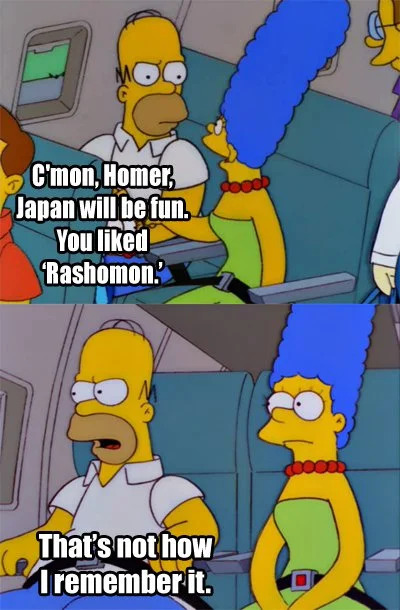
Every time I think about this joke I start laughing again.
#humor#simpsons#rashomon#is a movie about multiple people describing the same event#in conflicting ways that disagree with each other
3K notes
·
View notes
Photo
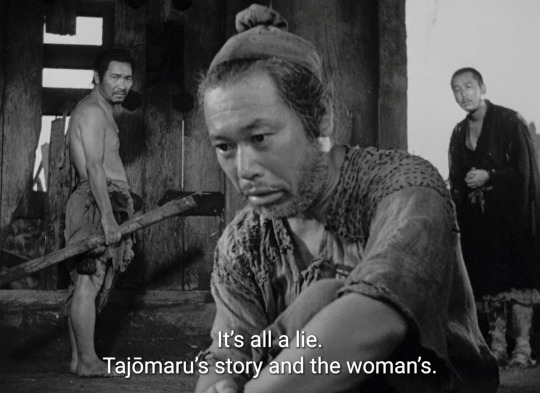
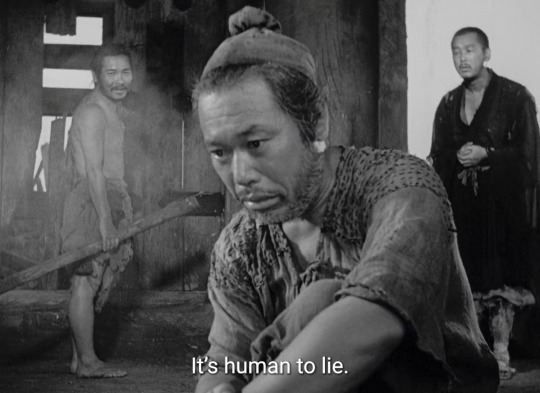
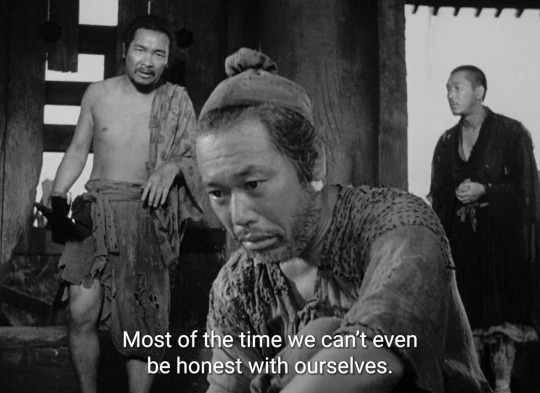
Most of the time we can’t even be honest with ourselves.
#rashomon#akira kurosawa#kazuo miyagawa#takashi shimura#1950#scenephile#film quotes#movie scenes#film scene#movie scene#movie quotes#movie#film
1K notes
·
View notes
Text

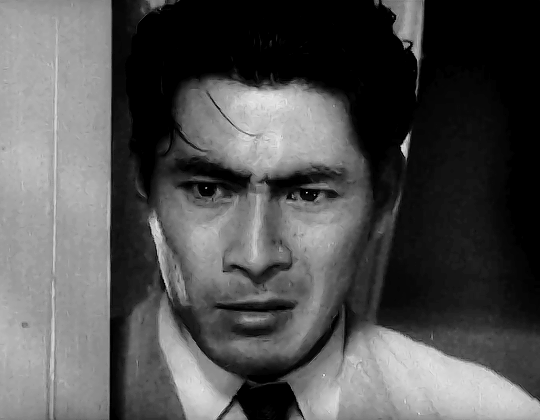
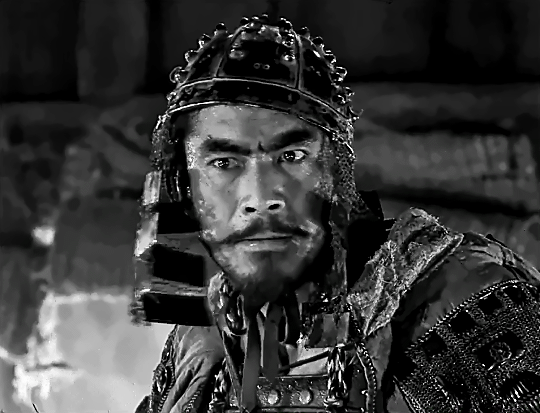
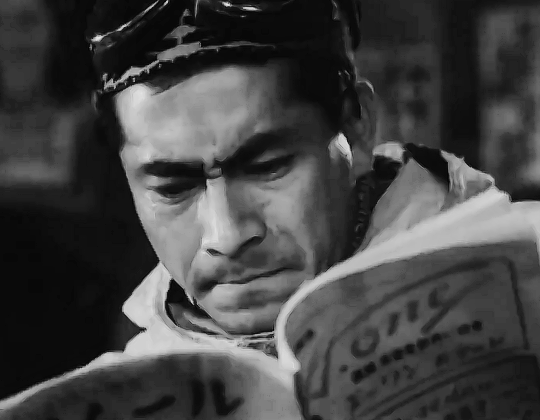

—happy birthday toshirō mifune (01.04.1920)
#toshiro mifune#akira kurosawa#rashomon#stray dog#seven samurai#scandal 1950#yojimbo#worldcinemaedit#classicfilmcentral#filmauteur#cinematv#filmgifs#toshirō mifune#三船 敏郎#mifune toshiro#mifunebooty#japanese movie#ellisgifs
336 notes
·
View notes
Text
every time i write a single-pov fic i'm like. but wait. what if i wrote an alternate pov version
#writing#on the one hand i do not need more wips but on the other i love rashomons#mostly bc of the rashomon job from leverage. the 1950 movie is on my vague list of things i should probably watch at some point#however i should not be thinking about alternate pov fics OR the 1950 movie i should be thinking about my thesis#kvetch oc
22 notes
·
View notes
Text

Akira Kurosawa and his cast behind the scenes on the set of "Rashomon." One of Kurosawa's many masterpieces, winner of an honorary Oscar as the most outstanding foreign language film and recipient of a nomination for its art direction, "Rashomon" was released in theaters on this date in 1950.
— at Japan Society Film
* * *
“The Heian Period (794–1185) was Japan’s classical era, a time of peace and opulence, when the imperial court in Heian-kyō (“Capital of Peace and Tranquility”: later Kyoto) was the fountainhead of culture, and the arts flourished. Toward the end, however, political power slipped from the aristocracy to the warrior class, the decline of the imperial court led to the decay of the capital, and peace gave way to unrest. This was the part of the Heian Period that interested Akutagawa, who identified it with fin-de-siècle Europe, and he symbolized the decay with the image of the crumbling Rashōmon gate that dominates his story. Director Kurosawa Akira borrowed Akutagawa’s gate and went him one better, picturing it as a truly disintegrating structure, entirely bereft of its Heian lacquer finish, and suggestive of the moral decay against which his characters struggle. His film Rashōmon (1950) was based on two of Akutagawa’s stories, “Rashōmon” and “In a Bamboo Grove.” Both—themselves based on tales from the twelfth century—reach far more skeptical conclusions than the film regarding the dependability of human nature and its potential for good."
(Jay Rubin)
― Ryūnosuke Akutagawa, Rashomon and Other Stories
34 notes
·
View notes
Text
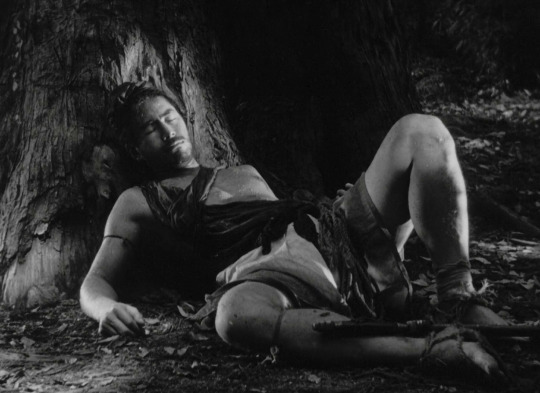

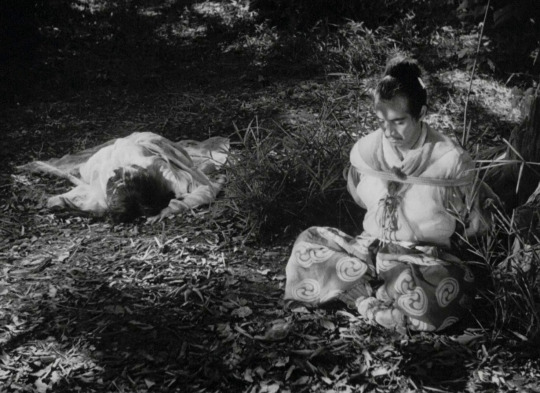

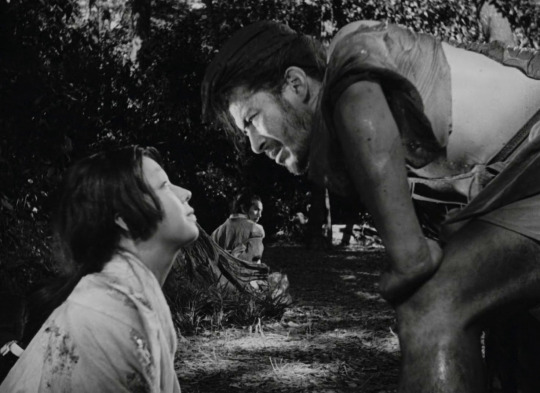
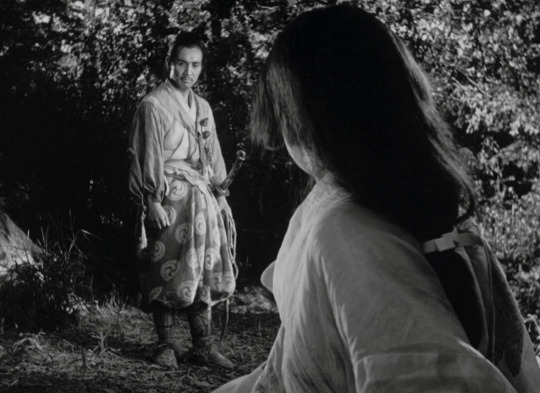
Rashomon (1950) | dir. Akira Kurosawa
#rashomon#akira kurosawa#toshiro mifune#machiko kyo#masayuki mori#films#movies#cinematography#screencaps
117 notes
·
View notes
Text
like it goes without saying this fandom is stupid annoying and racist but there’s certain things coming from amc that encourages that type of behavior and it’s something shows/film franchises constantly do even though the results are usually awful and unpopular and totally unnecessary. when you hoard a piece of information, tease and hype up the reveal, even if it turns out to be kind of innocuous, you are signaling to the audience to view it with more importance than the story beats that are presented without all this subterfuge. it’s a completely natural inclination for a viewer to then think that piece of information is going to be hugely impactful cause why else was it kept from them? do I think they’re actually going to reveal that louis wasn’t abused and it was all fake?? no but whatever is revealed in s2 immediately then carries more weight than what we were given in s1 simply by virtue of having been kept from the audience and revealed much later.
for example say the revisited scene is just louis trying to fight back (on its own a totally reasonable part of the story), the mere fact that it was hidden and revealed dramatically 2 years later makes the audience think it’s a game changing development. while that beat in and of itself is not a harmful trope, the fact that it’d be presented as a belated revelation absolutely falls into victim blaming tropes (like wink wink to the audience that hey this is LESS bad now cause he didn’t take it lying down). unless the missing scene is like lestat beating him up even more, which is an extremely dumb thing to hide and try to reveal later, the viewer is going to naturally take any new piece of information as cue to rethink how they feel about that scene because the story chose to hide it.
16 notes
·
View notes
Text
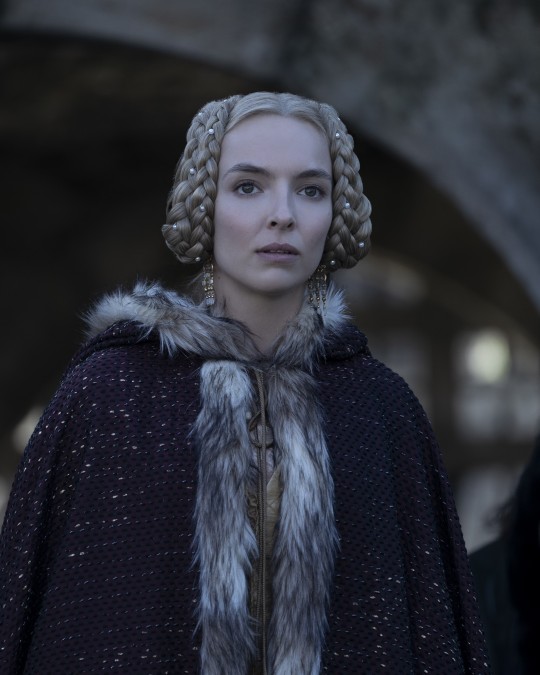
The Last Duel (2021)
#2021#1386#film#movie#Rashomon-style#The Last Duel#Ridley Scott#Jodie Comer#Marguerite de Carrouges#Matt Damon#Sir Jean de Carrouges#Adam Driver#Jacques Le Gris#Ben Affleck#Pierre d'Alencon#Marton Csokas#Crespin#Alex Lawther#King Charles VI#The Caroline War#Hundred Years' War#Belleme#France#knights
14 notes
·
View notes
Text
#William Shatner#Lawrence of Arabia#David Lean#Rashomon#Akira Kurosawa#Goodfellas#Martin Scorsese#Scorsese#Jaws#Jaws 1975#Steven Spielberg#Spielberg#letterboxd#4#movies#favorite movies
8 notes
·
View notes
Text

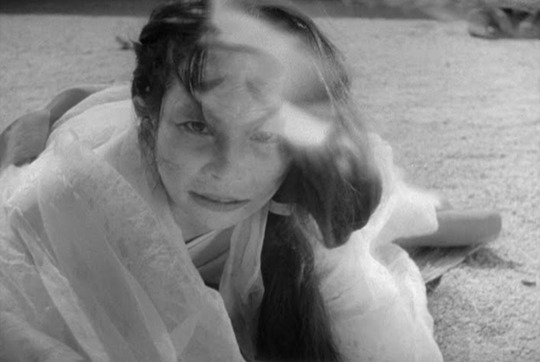
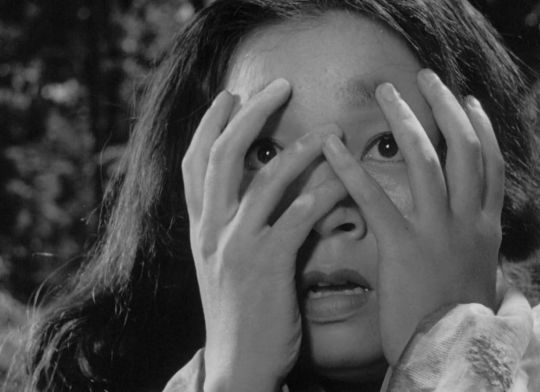



SUBLIME CINEMA #657 - RASHOMON
Any dive into Japanese cinema isn't complete without this film, one of Kurosawa's many masterpieces and some have argued his finest. This was a revolutionary picture when it first appeared - the camera work, narrative fragmentation, energy and clear star appeal of Toshiro Mifune was startling to audiences across the globe, and it's still cited as many filmmakers favorite. This is a perfect, circling movie that is as much about storytelling as it is a great story.
#cinema#film#films#movies#movie#japanese#Japanese cinema#cinema of japan#Akira kurosawa#toshiro mifune#samourai#50s cinema#postwar cinema#film stills#filmmaker#kurosawa#japan#rashomon
35 notes
·
View notes
Text

Rashomon 羅生門 french poster - restored version 4k ultra HD Editions Potemkine Films - 2021
#Rashomon#羅生門#Japanese movie#Kurosawa Akira#黒澤 明#Toshirō Mifune#三船 敏郎#Potemkine Films#French poster#Japan#2020s
241 notes
·
View notes
Note
i've seen your other post about ran and it's so true! i attempted to watch it after reading king lear for my shakespeare's theater course at uni and i remember i was working on my essay about identity and love in the play and thought "ok i'm gonna watch a couple of adaptations and see how this themes translate" but then in ran they're just sons... and i don't think sons have the capacity of threatening a father's sense of self quite as daughters do, especially in the way king lear explores those themes. but ofc i only saw like a quarter of the movie before i gave up on it and idk if sons work better for what kurosawa gets out of the story, so i'd love to know what you think when you finish it. i think throne of blood is also a macbeth adaptation but haven't seen that either.
yeah i mean i think ran is an exquisitely rendered film, and i would never deny its excellence as a work of filmmaking, but as an adaptation of king lear it falls somewhat short to me. obviously i have very high standards when it comes to determining whether or not someone can actually comprehend and interpret lear "properly," but i do think transposing lear's daughters into sons an obvious and egregious error. lady kaede (i think she's meant to be an edmund analogue or possibly even albany? unclear) is by far the most engaging, compelling, and intriguing character in the film for a reason! and i don't even say this as someone who thinks the best characters in lear are his daughters (i do love regan a lot, but my favorite characters are edgar and the fool, everyone knows that), but lear's patriarchal dynamics are so specific and central to the entire thematic and political framework of the narrative. like you say, sons do not have quite the same capacity to threaten lear's sense of self. hidetora cannot curse taro's womb, etc. i also just don't think that kurosawa really understands the nature of lear's "madness," or even the central tragedy of the play beyond the most shallow reading of it as a nihilist critique of senseless violence and cruelty. it's a beautifully composed film, but i might be too close to the matter because it ended up just mildly frustrating me throughout. that said i love lady kaede sm <3
#bulsaraf#ask#king lear#ran#im gonna watch rashomon next probably#spent the entire movie thinking abt the syllabus for my king lear utena seminar except to clap and cheer whenever kaede was on screen
10 notes
·
View notes
Text


It was just a glimpse. First I saw her, then she was gone—I thought I had seen an angel. And right then I decided I would take her, that I’d have her even if I had to kill the man...
RASHŌMON (1950) dir. Akira Kurosawa
#rashomon#machiko kyo#toshiro mifune#akira kurosawa#classicfilmcentral#cinemaspast#filmauteur#worldcinemaedit#RASHŌMON#filmgifs#kurosawa akira#toshirō mifune#japanese movie#羅生門#黒澤 明#ellisgifs#queue
140 notes
·
View notes
Photo
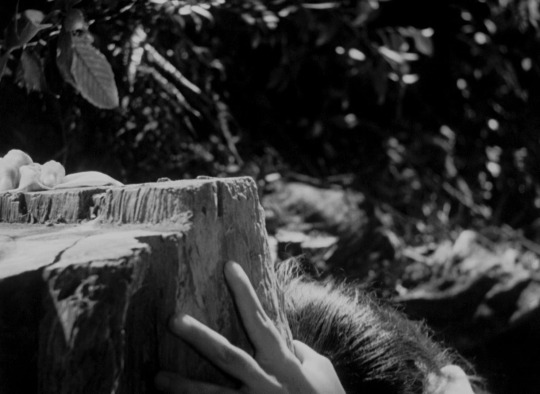

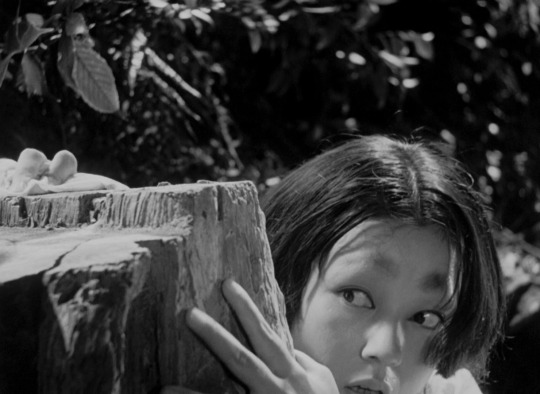
Machiko Kyō in “Rashomon” (1950) dir. Akira Kurosawa
#machiko kyō#rashomon#akira kurosawa#film#cinema#movie#movie stills#film frames#cinematography#cinephile
30 notes
·
View notes